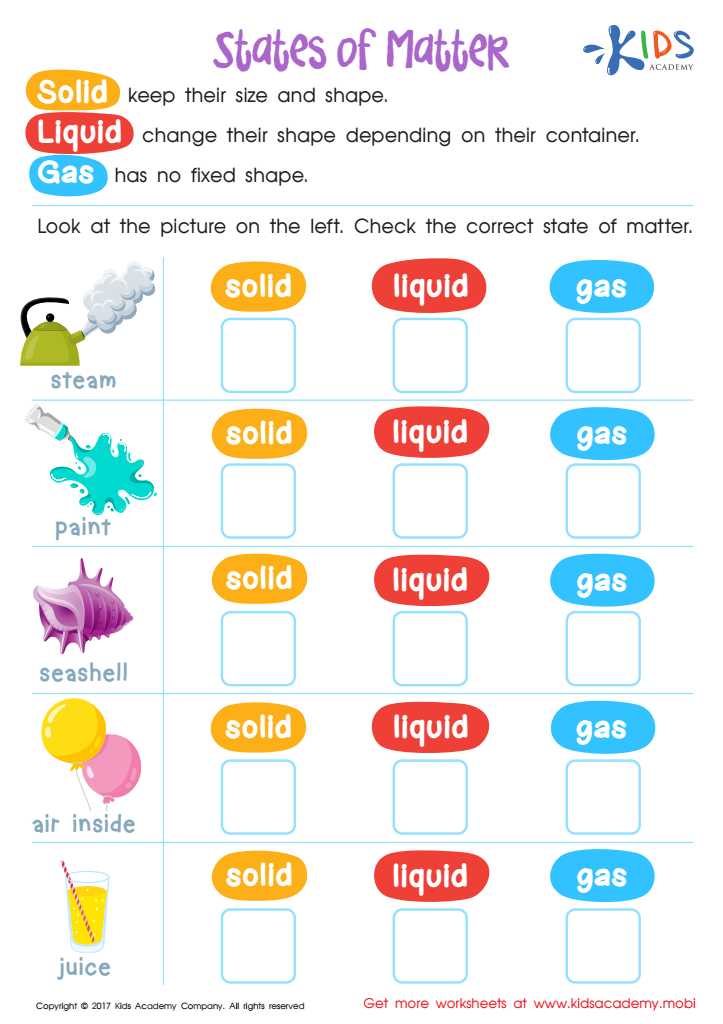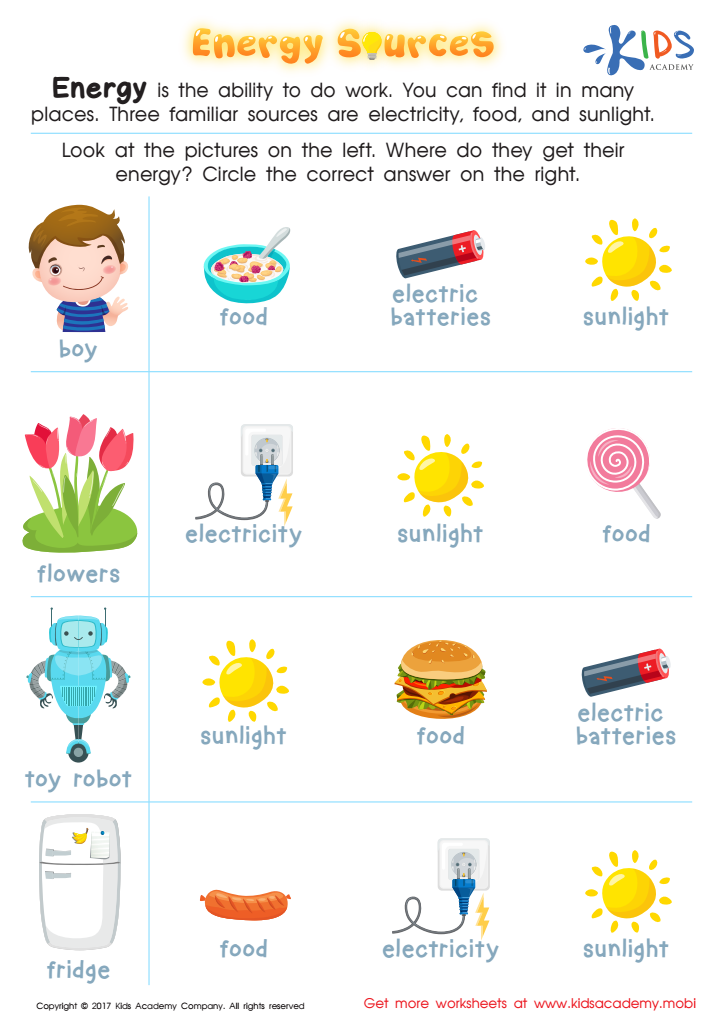Physical Science Worksheets for Ages 3-6
3 filtered results
-
From - To
Discover engaging Physical Science Worksheets designed specifically for children aged 3-6! Our interactive resources stimulate curiosity and encourage exploration of the world around us. These worksheets cover essential topics such as properties of matter, the five senses, earth and sky, and simple machines, tailored to young learners' developmental stages. Each activity is crafted to foster critical thinking and hands-on learning, making science fun and accessible. Parents and educators can easily print the worksheets for home or classroom use, ensuring little ones have the tools they need to spark their scientific imagination. Start your child's science adventure today!


Physical Science: States of Matter Worksheet


Sink or Float Printable


Energy Sources Printable
Physical science is essential for young children, specifically ages 3-6, as it lays the foundation for critical thinking and an understanding of the world around them. Engaging with basic concepts in physical science—like movement, force, matter, and energy—encourages curiosity and exploration. At this age, children are natural scientists, often asking "Why?" and "How?" physical science provides opportunities for them to discover answers through hands-on experiments and interactive play.
By introducing physical science concepts early, parents and teachers help develop essential skills such as problem-solving, observation, and reasoning. Activities such as simple experiments with magnets, gravity, or water promote inquiry-based learning, fostering a lifelong love for science and discovery. Moreover, integrating physical science into play enhances fine and gross motor skills, creativity, and collaboration among peers.
Moreover, understanding these foundational principles is increasingly crucial in a technology-driven world. As children grow, these early exposures can influence future academic pursuits and career interests in science, technology, engineering, and mathematics (STEM). Therefore, by prioritizing physical science for early learners, adults empower children to become inquisitive, knowledgeable, and proactive citizens capable of making informed decisions about the world they inhabit.
 Assign to My Students
Assign to My Students















